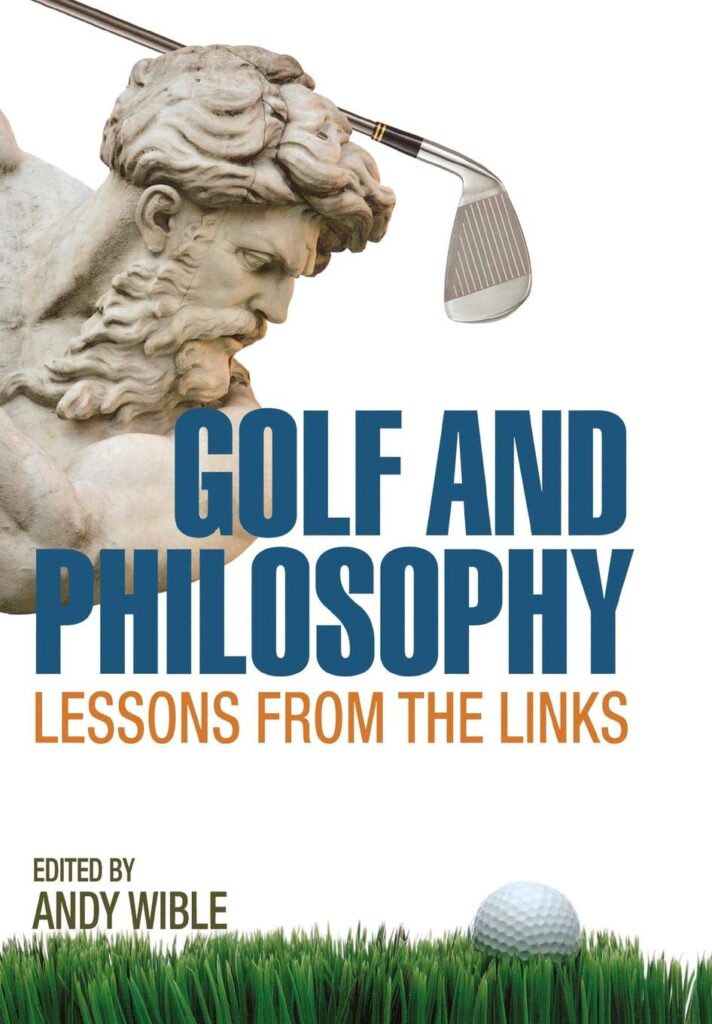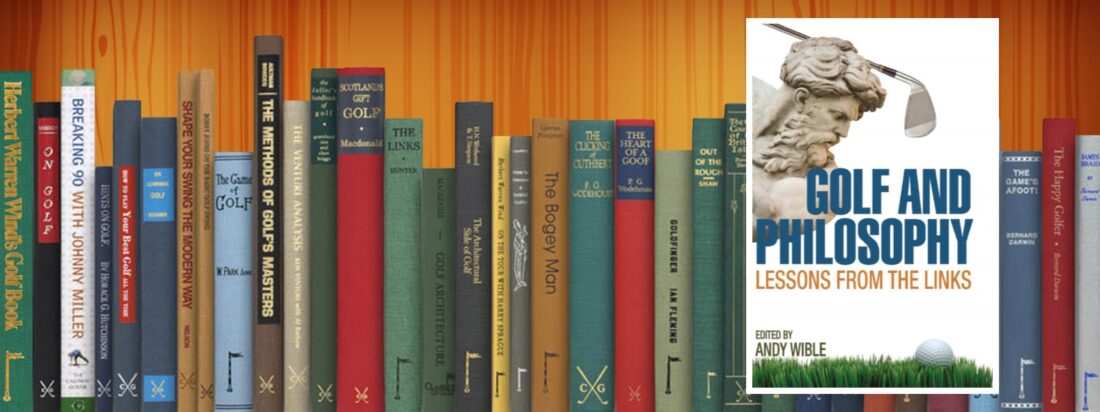“”Golf and Philosophy succeeds admirably in demonstrating how philosophy can shed light on an area of popular culture, and does so in a way accessible to nonspecialists while presenting points of interest to scholars pursuing cultural studies or the interconnections among philosophy, sport, and ethics.” — Robert Simon, Marjorie and Robert W. McEwen Professor of Philosophy, Hamilton College” —
“Examines golf through the lens of ethical, social, and philosophical issues.” — publishersweekly.com

In a game where players are expected to call their own penalties and scoring the least points leads to victory, decorum takes precedence over showmanship and philosophical questions become par for the course. Few other sports are as suited for ethical and metaphysical examination as golf. It is a game defined by dichotomies — relaxing, yet frustrating, social, yet solitary — and between these extremes there is room for much philosophical inquiry.
In Golf and Philosophy: Lessons from the Links, a clubhouse full of skilled contributors tee off on a range of philosophical topics within the framework of the fairway. The book’s chapters are arranged in the style of an eighteen-hole golf course, with the front nine exploring ethical matters of rationality and social civility in a world of moral hazards and roughs. The back nine pries even deeper, slicing into matters of the metaphysical, including chapters on mysticism, idealism, identity, and meaning.
Taken together, the collection examines the intellectual nature of this beloved pastime, considering the many nuances of a sport that requires high levels of concentration, patience, and consistency, as well as upstanding moral character. Golf and Philosophy celebrates the joys and complexities of the game, demonstrating that golf has much to teach both its spectators and participants about modern life.
Andy Wible is an instructor of philosophy at Muskegon Community College. (source)
Related posts
Golf Funny Commercial #106
on Saturday 20, OctoberBud Light – Chicken Golf. embedded by Embedded Video


